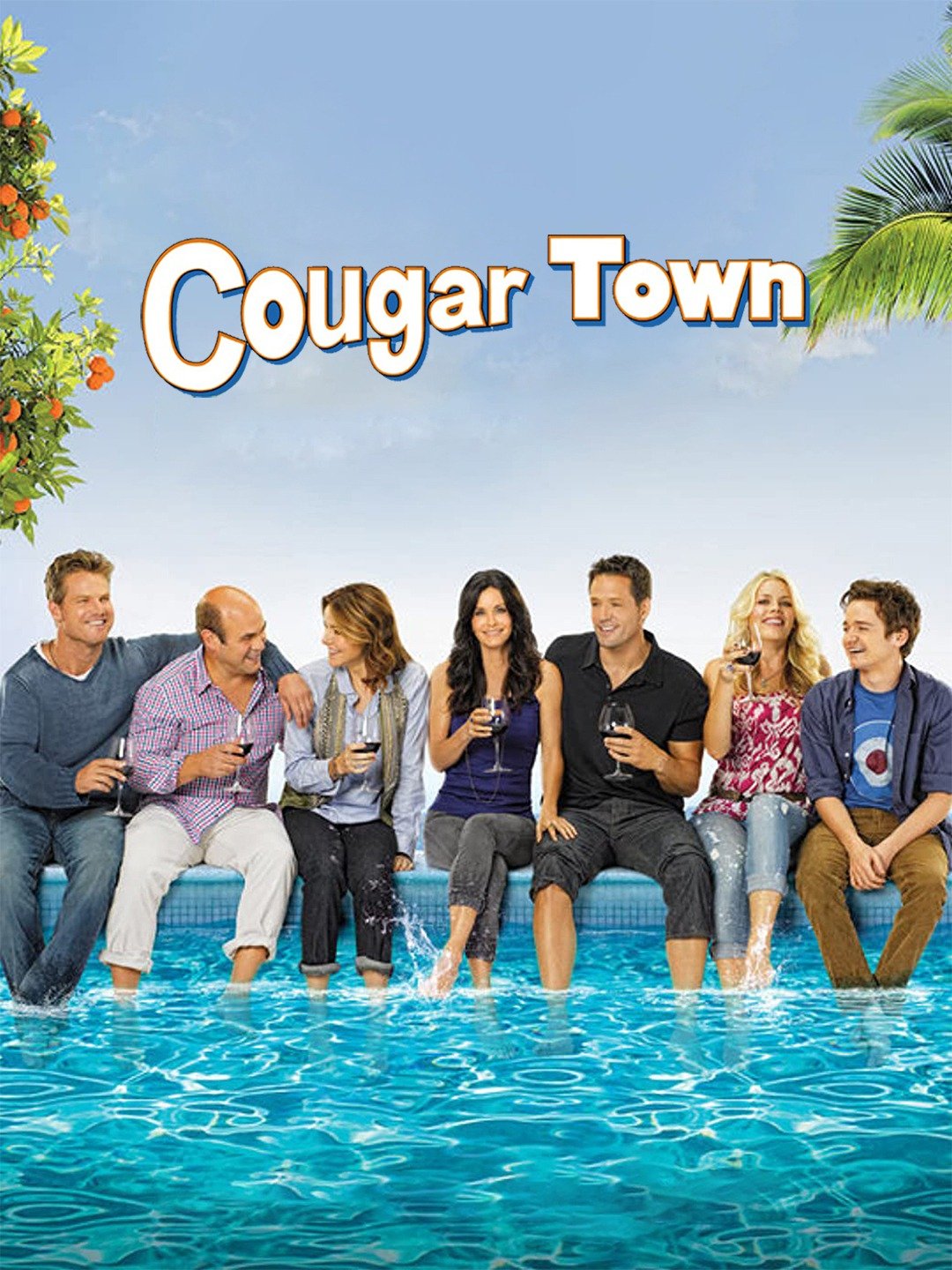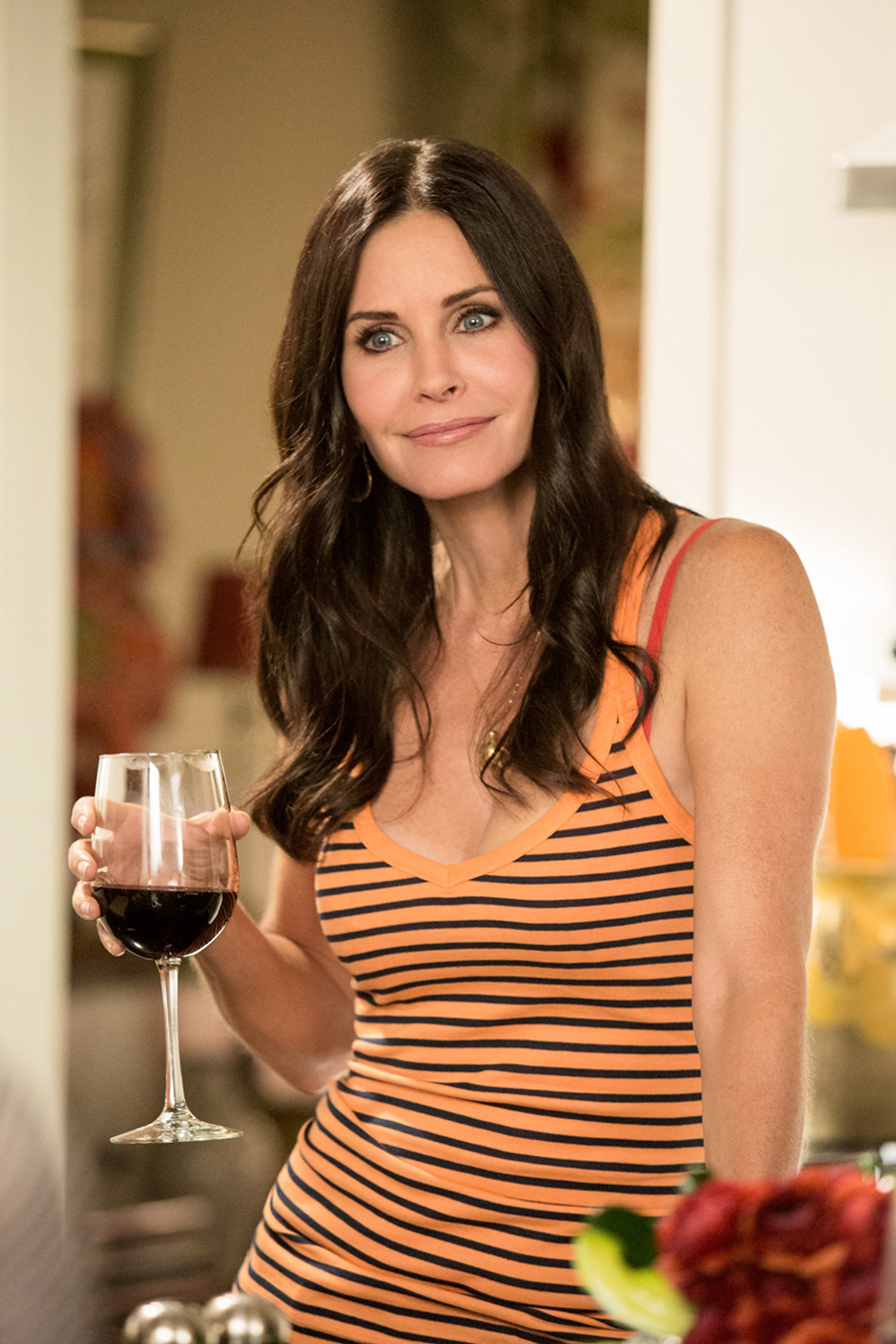On The Screen is a series here on Writing Theory where we dissect television and film to better understand their decisions in storytelling and how you can apply it to your own writing.

Cougar Town
Cougar Town is a show that ran for six seasons from 2009 to 2015. It stars a cast of characters lead by Courtney Cox as title character Jules Cobb. I’m currently in season 5, so I can’t say that I’ve finished the show, and I’ve been watching this show through a very interesting lens.
The show follows Jules Cobb as the ’leader’ of her friend group. It consists of her now-husband Grayson, friend and former employee Laurie, married neighbors Ellie and Andy, ex-husband Bobby Cobb, and her son Travis. Every episode revolves around this group of characters interacting with each other, the single characters pursuing relationships, and ending the day with a bunch of glasses of wine.
That’s the general vibe of the show. Here’s the catch: Jules Cobb is kind of a terrible human.
The Unlikable Character
The more I watched this show, the more I found that I didn’t like Jules Cobb. I wasn’t rooting for her to win or even to be happy. She constantly made decisions that were selfish with no regard to her friends. Here are some examples:
- Jules likes to hold a family prayer before dinner. Grayson is not religious. Jules believes that Grayson should become religious because they are now married. It’s not acceptable to her that Grayson doesn’t believe in a god, he must change his ways for her.
- When Jules and Grayson get married, they each own a house and neither want to give up their home. They ultimately decide that they should move into Jules’ house because she likes to have coffee there.
- Jules is embarrassed that her ex-husband Bobby is living in a boat in a parking lot, even though he is happy like that. She sneaks his boat into the water without his knowing and it sinks.
And, honestly, just every interaction with her friend group goes this way. The show attempts to emphasize Jules’ interactions with her friends as if she was this kind-hearted soul. She’s always wanting the best for her friends. Her fatal flaw in this regard is that she doesn’t care what they really want. Instead, she decides what they should have and then imposes it upon them. What’s best for them is solely what she thinks is best for them.
Jules is juxtaposed alongside Ellie, her neighbor and best friend who is notoriously callous and rude. Here’s the thing, Ellie is a likable character. Even though she is mean and rude and refers to people in rude nicknames like Jelly Bean (her nickname for Laurie because she has the brain the size of a jelly bean) and Dime Eyes (her nickname for Grayson because she likes to remind him that his eyes are too small).
Effects of an Unlikable Character
So what happens to the viewer in cases like this? If I’m watching this show for over 100 episodes, I’m bound to notice this repeating pattern of behavior and ask some questions:
- Why is this group so loyal to Jules when she seems so selfish?
- Why is everyone okay with Jules behaving like this so often?
- How come that, every time Jules does this kind of behavior and her friends get mad, they get over it almost immediately?

More importantly, the show feels more empty when you are not rooting for the main character. What is there for a viewer to invest in?
In a show like How I Met Your Mother, Ted Mosby is this hopeless romantic that self-sabotages himself simply because he is too eager for a future with someone. He’s too quick to want to move forward. Outside of this self-sabotaging behavior, he is a loyal friend and he has a passion for his career and goals that he wants to pursue. I can write about Ted Mosby’s journey throughout the show and how I want him to win.
In Cougar Town, I can’t do that. Jules Cobb is charming and has a big smile, but she doesn’t really care about her job as a real estate agent (which basically disappears throughout the show). She has friends that she loves, but she disregards their feelings for her own view of their future. She makes decisions on their behalf over and over again. She has no real conflicts because all of her friends completely forgive her intrusions immediately after they happen.
What Can We Learn?
Gray characters, morally ambiguous characters, are a big trend in fantasy right now. The private investigator that is willing to break the rules to solve the murder is a classic trope. The morally gray characters of Game of Thrones, The First Law, and more modern grimdark have shifted the landscape of nearly all fantasy from the traditional hero to a more flawed person.
These morally gray characters don’t mean that they are unlikable. That’s not what an unlikable character is. They have morally gray goals, but they can still be fully developed human characters that you can related to.
Unlikable characters are ones that betray acceptable social behaviors and don’t face consequences. Barney Stinson, in the early episodes of How I Met Your Mother could be seen as unlikable because he seems to prey on women. Barney transcends this unlikability as we see all of the other facets of his character. He roots for his friends and wants them to succeed. He is constantly trying to help Ted meet girls so that Ted can find his future wife. Over time, we see that he is a loyal friend to all in his friend group. We also see that, while he is trying to sleep with all of these women, he fails many times and is punished for it by either ridicule from his friends, a drink in his face, or receiving a slap that leaves him reeling.
An unlikable character, with this in mind, has to be a character that acts in a socially unacceptable way, doesn’t have a balancing set of positive qualities, and doesn’t get punished for their poor behavior.
This gives us a framework for creating protagonists and supporting characters that can provide conflict, but still have the reader’s support.
Takeaways
- An unlikable character acts in a socially unacceptable way, doesn’t get punished for that behavior, and lacks redeeming qualities
- An unlikable character is not the same as a morally gray character. A morally gray character may choose to break social norms, but has reason, motivation, and clear human goals that provide incentive to do so. Whether it is greed, passion, or some other force; there is reason for this behavior. A morally gray character may act in this gray area, but is still a developed character with human traits, motivations, and flaws
